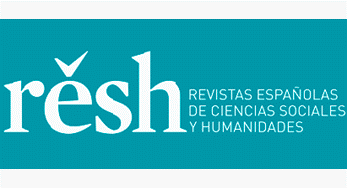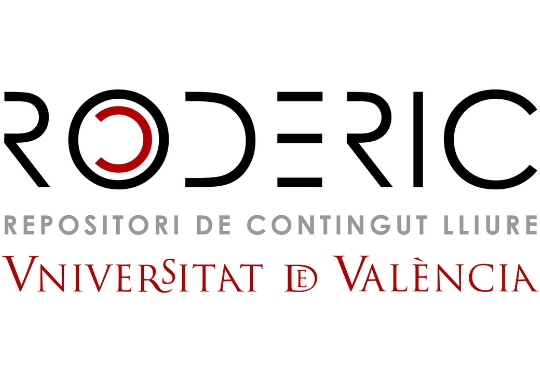About the Journal
Focus and Scope
EU-topías, a Journal on Interculturality, Communication and European Studies, was founded in 2011 and is published semianually by the Department of Theory of Languages and Communication Studies of the University of Valencia, Spain, and by The Global Studies Institute of the University of Geneva, Switzerland. The journal’s principal aims are:
1) to study the multiple cultures constituting the global village we live in and its intrinsically intercultural articulation
2) to analyse the role played by the media as self-appointed “interested mediators” in their attempt to naturalize their vision of reality in the social imaginary
3) to open up a debate within the project of a European community conceived of as a cultural common space, rather than merely an economic one.
EU-topías seeks to intervene in cultural critique leaving behind the false idea of a unified, totalizing field of knowledge, understood as a sum of compartmentalized disciplines. It focuses instead on partial approaches, historically located both in space and time; it assumes that the plural, fragmented and contradictory configuration of reality compels us to introduce an interdiscursive and interdisciplinary dialogue in the organization of knowledge.
Mission
To promote the circulation of theoretical research and individual works on social, cultural and communication issues arising from the complex processes of regional and global transformation.
Objectives
To contribute to the interdisciplinary debate through the circulation of unpublished materials on a variety of emergent and recurrent topics related to the fields of communication, interculturality and European studies.
Peer Review Process
Peer review
Papers submitted to EU-topías. A Journal of Interculturality, Communication and European Studies will be subject to confidential evaluation by two experts.
The reviewers must recommend one of the three options on the evaluation form to be completed (accept, revise or reject the manuscript) with the appropriate justification for the decision and the list of amendments to be made by the author. In the event that the reviewers propose modifications, it is the person in charge of editing who must inform the author of the work, ensuring that the process of rewriting the article is monitored. If the article is not accepted for publication, the author will be informed of the opinions issued by the reviewers. In the event of a strong discrepancy between the recommendations of the two reviewers, a third opinion may be requested. In any case, originals that do not follow the journal's standards will be returned for correction before being sent for external review.
Open Access Policy
EU-topías. A Journal on Interculturality, Communication and European Studies is a free open access journal for readers and does not charge authors for submitting and processing articles for publication.
Author Self-Archiving Policies
This journal allows and encourages authors to publish articles submitted to the journal on their personal websites or in institutional repositories, always after their publication in this journal, as long as they provide bibliographic information that accredits, if applicable, their publication in the journal.
Indexing
EU-topías, a Journal on Interculturality, Communication and European Studies is indexed in:
Latindex
ERIH PLUS
CIRC
ISOC
RESH

Dialnet
REDIB
Dulcinea
MIAR
Recolecta
Roderic
Dice
DOAJ
Ebsco
Digital preservation
The content of this journal is filed and published in the Web Spaces of the University of Valencia (UV), both in the Institutional Repository RODERIC (roderic.uv.es) and in the Open Journal System of the Institution (ojs.uv.es).
All the contents of the Institution’s Web Spaces are copied periodically on to the UV servers and on a different backing medium. A double security is therefore provided: against unwanted changes, due to mistake by the user, and in case of a collapse of the University of Valencia Computer Center.
Additionally, the complete volumes and articles of the journal are stored on external hard disks and digital data storage (cloud storage).
Anti-plagiarism Policy
EU-topías. A Journal of Interculturality, Communication and European Studies uses the anti-plagiarism software URKUND to detect the level of similarities with other publications in the web, regardless of the language used, and thus guarantees the originality of the published texts.
Submitted articles are sent to URKUND by the Journal’s editorial team through the OJS platform of the University of Valencia. Once the texts are analyzed, the report produced about each article is sent to the Journal’s editors.
Interoperability protocol
The journal metadata is available through the OAI-PMH protocol at the following link: https://ojs.uv.es/index.php/eutopias/oai
Journal's code of ethics
Obligations of authorship
The submission of papers to the journal EU-topías. A Journal of Interculturality, Communication and European Studies for blind peer review implies the express commitment of the author to the originality of the manuscript, which implies that it has not been previously published nor is it in the process of evaluation or publication in any other medium or in any other language. The contrary can only be stipulated by exceptional agreement with the journal's management.
In the event that the author has had the collaboration of persons or entities for the preparation of the manuscript, this circumstance must be clearly stated in the text. Authorship is restricted to the person responsible for the main preparation of the work, with the possible consideration of co-authorship for those who have made a significant contribution.
The author must identify all sources used in the creation of the manuscript and cite them according to the rules concerning copyright and ethical uses of scientific works. The author is responsible for obtaining the relevant permissions, as well as indicating their origin, when reproducing original material such as texts, graphs, images or tables. The author must follow the general editing rules that appear inside the journal EU-topías. Journal of Interculturality, Communication and European Studies.
It is the author's obligation to point out any economic, financial or other conflicts that may guide or limit the conclusions or interpretation of the manuscript.
The author must report any errors detected in the peer review process and make the necessary corrections to the manuscript. This entails collaboration with the editor and editors of the journal in the withdrawal of the manuscript.
It is the responsibility of the author to obtain the necessary permissions for images that are subject to copyright.
Review obligations
The peer review process responds only to the intellectual content of the manuscript without regard to the author's gender, class, sexual orientation, religion, ethnicity, nationality or ideology. Articles submitted for publication in A Journal of Interculturality, Communication and European Studies undergo a double-blind peer review process in which the anonymity of both the author and the reviewers is respected.
The journal's management and editorial board select the reviewers of the manuscripts, who are always experts in the subject matter of the text in question. The journal's management and editorial board are responsible for guaranteeing maximum anonymity between authors and reviewers, ruling out the choice of a reviewer who has personal, work or institutional relations with the corresponding author.
The management and editorial board are committed to the confidentiality of all information relating to the articles submitted, which will be known only to the authors and blind peers.
The peer review process will take a maximum of two months. The editorial board is not responsible for delays in blind peer review.
Responsibility of evaluators
Information concerning manuscripts submitted by authors is privileged information and must be treated as such, i.e. with absolute confidentiality. The texts may not be shown, disseminated or discussed: the only exception is reserved for cases in which the specific advice of an expert in the field is required. However, the journal's management will be informed of the identity of the expert consulted.
The evaluation of the manuscript is carried out rigorously, objectively and with respect for the intellectual independence of the authors. The reviewers' comments must be clear and based on academic arguments with the aim of improving the article.
If a reviewer considers that he or she does not have sufficient expertise to review the article, he or she must immediately notify the journal's management. In addition, reviewers who have a particular conflict of interest with any of the authors, companies or institutions cited in the article must immediately refuse to review the article.
Obligations and editorial responsibility of the management and editorial board
The journal's management and editorial board reserve the right to refuse to publish a manuscript if they consider that it does not follow the fundamental parameters of scientific texts or if it does not fall within the areas of interculturality, communication or European studies.
The management and the editorial board are bound by the code of ethics in the process of developing and publishing the journal. All appropriate measures will be taken in the event of malpractice, infringement of authorship and plagiarism.
The journal's management guarantees the journal's independence from any economic interest that would compromise the intellectual and ethical foundations of the journal, as well as ensuring its ethical integrity and the quality of the published material.
The journal management and editorial board will only publish original and peer-reviewed contributions. Exceptionally, the Gran Angular section may accept the English or Spanish version of an article that is considered interesting and is not available in any of the languages of the journal. This circumstance will have the explicit authorisation of the author and will be reflected in a footnote on the first page of the article.
Sponsors
- Departamento de Teoría de los Lenguajes y Ciencias de la Comunicación - UVEG
- The Global Studies Institute - Université de Genève













